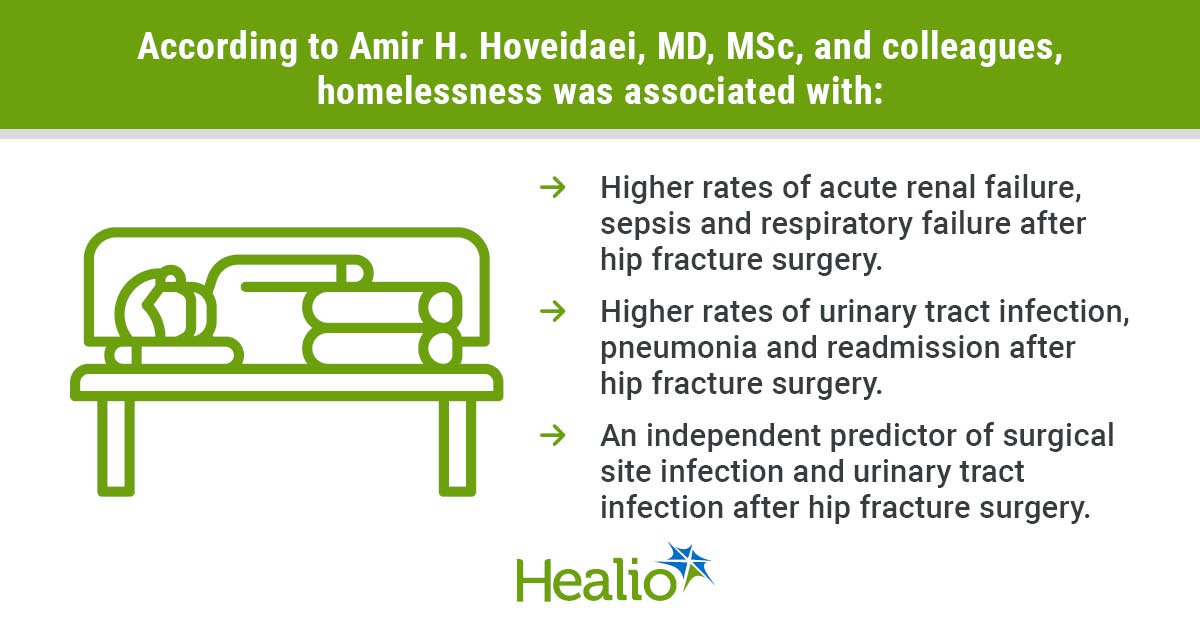October 18, 2025
1 min read
Key takeaways:
- Homelessness was associated with higher postoperative complication rates vs. patients who were housed.
- Homelessness was an independent predictor for surgical site infection and urinary tract infection.
PHOENIX — Homelessness may be associated with higher rates of postoperative complications following hip fracture surgery, according to data presented at the Orthopaedic Trauma Association Annual Meeting.
“Homelessness is a problem larger than the medical field, and we definitely cannot have a single prescription for solving this problem,” Amir H. Hoveidaei, MD, a clinical research fellow at the Rubin Institute for Advanced Orthopedics of Sinai Hospital in Baltimore, Maryland, told Healio.

Data were derived from Hoveidaei AH, et al. Homelessness and the outcomes of hip fracture surgical management: A nationwide study in the US. Presented at: Orthopaedic Trauma Association Annual Meeting; Oct. 15-18, 2025; Phoenix.
Hoveidaei and colleagues retrospectively analyzed data from the PearlDiver database from 2010 to 2022 on patients who received hemiarthroplasty, total hip arthroplasty, hip open reduction and internal fixation and percutaneous skeletal fixation surgeries following hip fracture in the United States.

Amir H. Hoveidaei
Outcomes measured included postoperative rates of acute renal failure, myocardial infarction, respiratory failure, sepsis, venous thromboembolism, pneumonia, urinary tract infection, surgical site infection and readmission.
According to the abstract, the study included 8,382 patients who were housed and 2,795 people experiencing homelessness.
Hoveidaei said homelessness was associated with higher 90-day postoperative rates of acute renal failure, sepsis, respiratory failure, urinary tract infection, pneumonia and readmission vs. patients who were housed.
In addition, Hoveidaei said homelessness was an independent predictor for 90-day surgical site infection and urinary tract infection following hip fracture surgery.
“I recommend my colleagues share their experiences with the outcomes of homelessness on medical and surgical complications in other types of fractures using institutional studies and large national databases,” Hoveidaei said.
For more information:
Amir H. Hoveidaei, MD, can be reached at hoveidaei.a.h@gmail.com.










